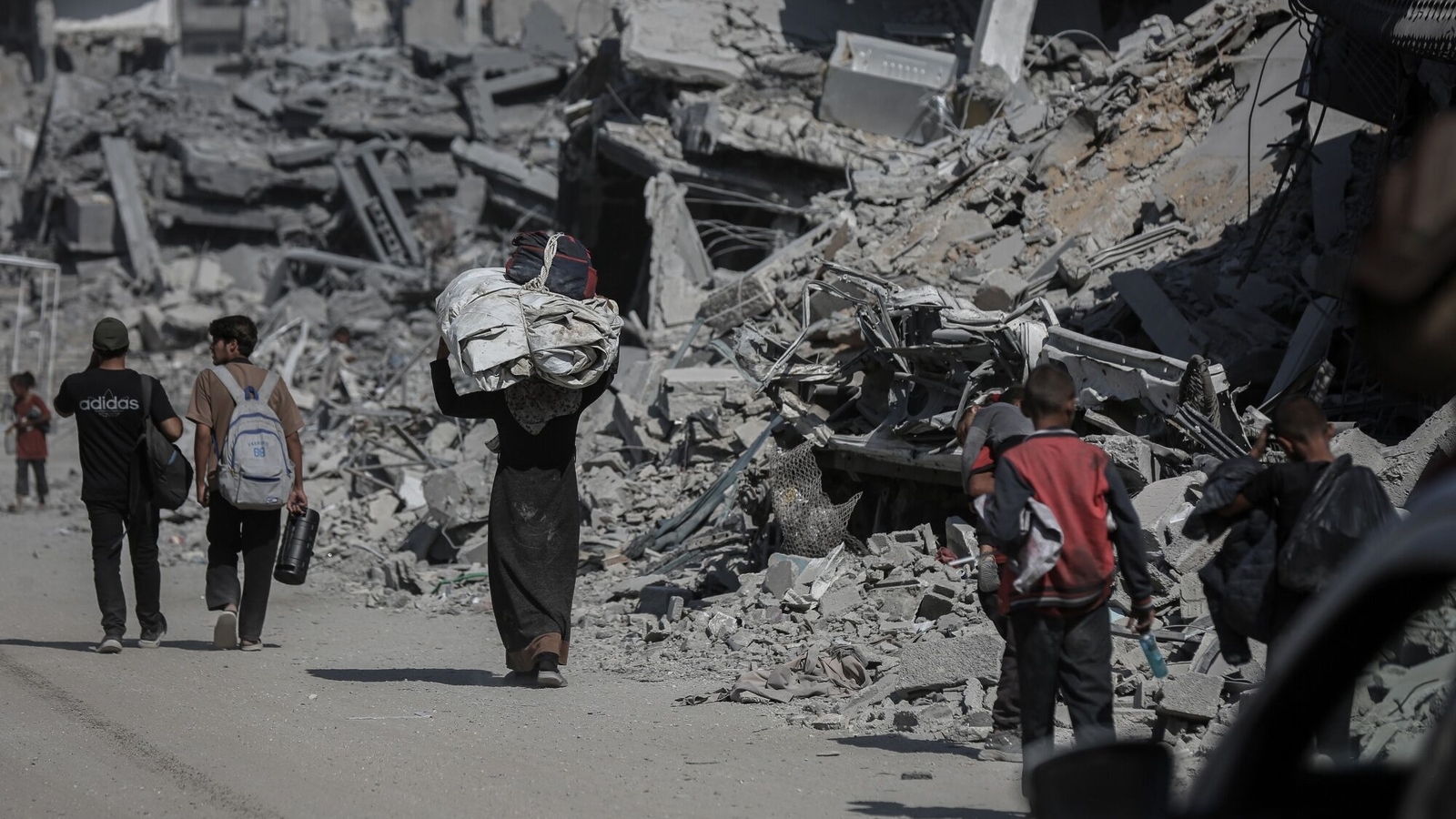
News
October 19, 2025
Gaza ceasefire at risk? Israel speaks of ‘Phase 2’ amid blame game over truce violations
Meanwhile, Israeli prime minister Benjamin Netanyahu has stated that the Gaza war will “truly end” once Hamas has been disarmed, hinting at a ‘Phase B’.
**Gaza ceasefire at risk? Israel speaks of ‘Phase 2’ amid blame game over truce violations**
The fragile ceasefire in Gaza is facing renewed threats as both Israel and Hamas accuse each other of violating the terms of the truce. Amidst the ongoing blame game, Israeli Prime Minister Benjamin Netanyahu has introduced uncertainty by speaking of a potential “Phase 2” of the conflict, raising concerns about the long-term stability of the region.
Netanyahu's remarks, hinting at a continued military objective, have added fuel to the fire. He stated publicly that the war in Gaza will "truly end" only when Hamas is disarmed. This declaration suggests that the current ceasefire may be viewed by the Israeli government as merely a temporary pause in hostilities, rather than a permanent resolution. The idea of a "Phase B," as it was subtly alluded to, implies further action aimed at dismantling Hamas's military capabilities.
The accusations of truce violations are coming from both sides. Reports suggest that each party claims the other has engaged in activities contravening the agreed-upon terms of the ceasefire. The specifics of these alleged violations are unclear, but the reciprocal accusations underscore the deep mistrust that persists between Israel and Hamas. This mutual distrust is a significant obstacle to achieving a lasting peace.
The international community has expressed growing concern over the escalating tensions. Diplomats are urging both sides to exercise restraint and adhere to the ceasefire agreement to prevent a resumption of violence. Calls for dialogue and negotiation are becoming more urgent as the risk of a return to full-scale conflict looms large. The United Nations and other international organizations are actively working to mediate between the two parties and find a path towards a more sustainable solution.
The prospect of further military action in Gaza raises serious humanitarian concerns. A "Phase 2" of the conflict would undoubtedly lead to further destruction and displacement, exacerbating the already dire living conditions for the civilian population. The international community is appealing to all parties to prioritize the safety and well-being of civilians and to seek a peaceful resolution to the conflict through diplomatic means. The future of the ceasefire, and indeed the future of Gaza, hangs precariously in the balance.
The fragile ceasefire in Gaza is facing renewed threats as both Israel and Hamas accuse each other of violating the terms of the truce. Amidst the ongoing blame game, Israeli Prime Minister Benjamin Netanyahu has introduced uncertainty by speaking of a potential “Phase 2” of the conflict, raising concerns about the long-term stability of the region.
Netanyahu's remarks, hinting at a continued military objective, have added fuel to the fire. He stated publicly that the war in Gaza will "truly end" only when Hamas is disarmed. This declaration suggests that the current ceasefire may be viewed by the Israeli government as merely a temporary pause in hostilities, rather than a permanent resolution. The idea of a "Phase B," as it was subtly alluded to, implies further action aimed at dismantling Hamas's military capabilities.
The accusations of truce violations are coming from both sides. Reports suggest that each party claims the other has engaged in activities contravening the agreed-upon terms of the ceasefire. The specifics of these alleged violations are unclear, but the reciprocal accusations underscore the deep mistrust that persists between Israel and Hamas. This mutual distrust is a significant obstacle to achieving a lasting peace.
The international community has expressed growing concern over the escalating tensions. Diplomats are urging both sides to exercise restraint and adhere to the ceasefire agreement to prevent a resumption of violence. Calls for dialogue and negotiation are becoming more urgent as the risk of a return to full-scale conflict looms large. The United Nations and other international organizations are actively working to mediate between the two parties and find a path towards a more sustainable solution.
The prospect of further military action in Gaza raises serious humanitarian concerns. A "Phase 2" of the conflict would undoubtedly lead to further destruction and displacement, exacerbating the already dire living conditions for the civilian population. The international community is appealing to all parties to prioritize the safety and well-being of civilians and to seek a peaceful resolution to the conflict through diplomatic means. The future of the ceasefire, and indeed the future of Gaza, hangs precariously in the balance.
Category:
World